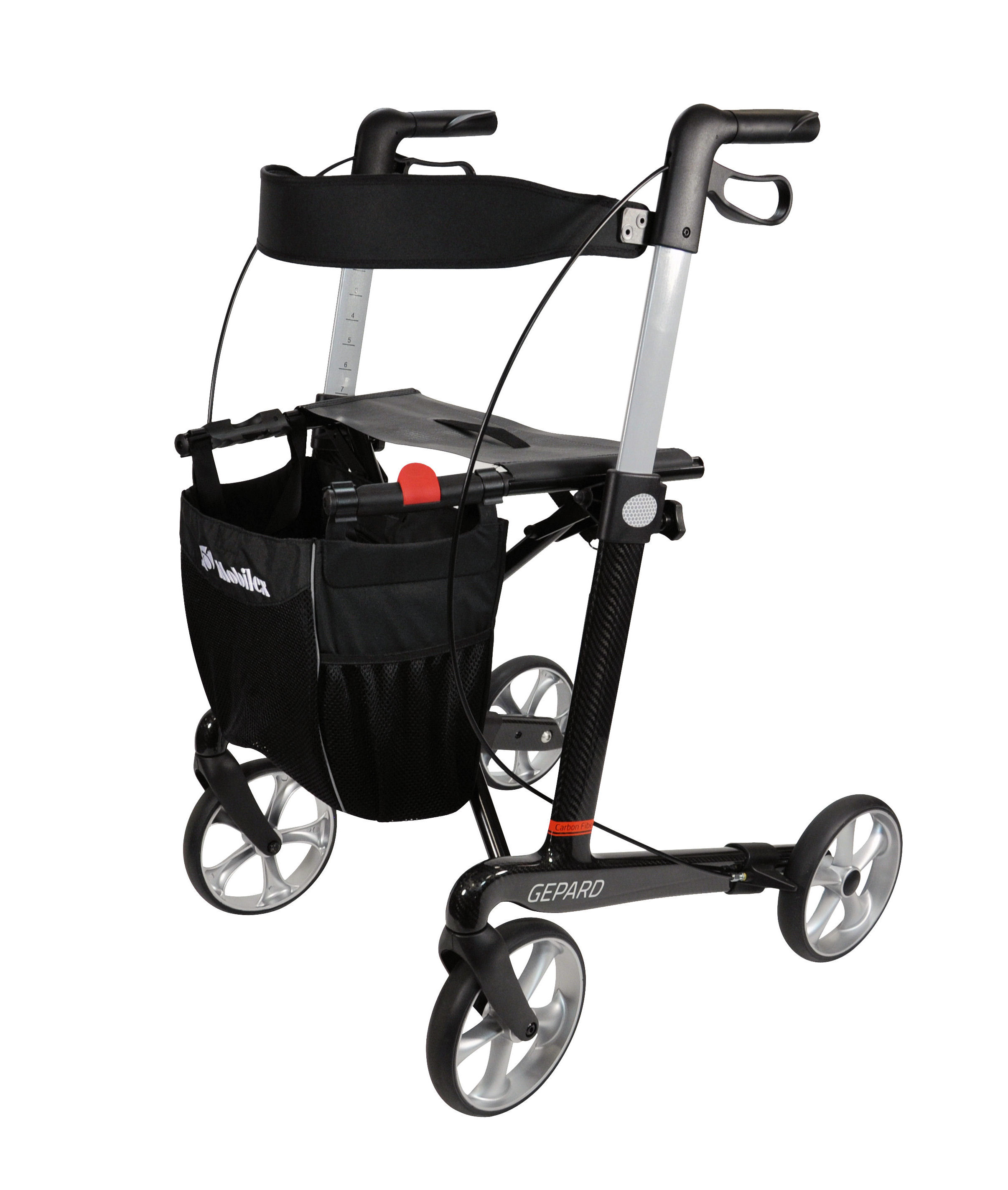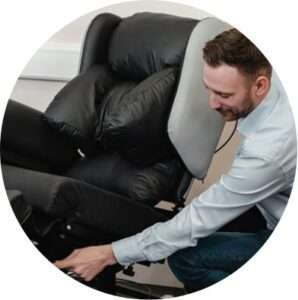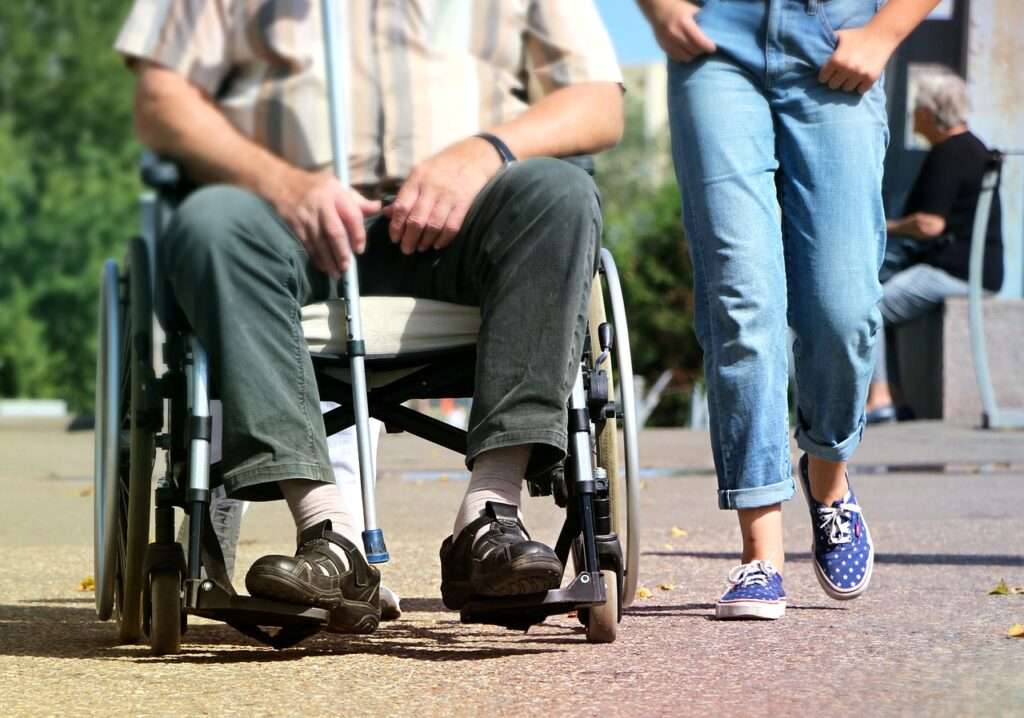Loneliness in the elderly is a key concern for the NHS and among charities that support older people. There are an increasing number of links found between loneliness and poor health. But what can we do to combat loneliness in the elderly?
Here we look at how helping older people to stay mobile can be an effective way to avoid social isolation and prevent feelings of loneliness.
Jump straight to…
Loneliness in the Elderly Statistics
Age UK have reported that 3.6 million older people live alone and over 1 million elderly people feel lonely all or most of the time.
Not only does this negatively impact their quality of life and mental wellbeing, but research shows social isolation has a significant effect on physical health too. One study found loneliness can be as harmful to health as smoking 15 cigarettes a day! Another found high levels of loneliness can double someone’s risk of developing Alzheimer’s Disease.
Causes of Loneliness in Older People
To try and combat loneliness, we first need to understand what causes loneliness in older people.
Many different factors can make someone feel lonely and the exact cause will differ for everyone. But research has found the main factors associated with being lonely for the elderly are:
- Smaller social circle — Older people often have a reduced social network due to their family moving away, retirement, or friends and spouses passing away.
- Lower income — After retirement, some older people don’t have the funds to socialise in the same way as when they were working.
- Lack of local facilities — some neighbourhoods do not run events and activities that appeal to an older person. Other times, the building or location where activities are held are not accessible.
- Limited mobility — As we age, we lose muscle mass and joints become stiffer which makes getting around harder. Many older people struggle to get out of the house unaided which limits their ability to socialise.
How can mobility aids help combat loneliness?
As mobile phones and computers become more popular with older people, it is easier for them to keep in touch with distant family and friends. However, digital interaction alone cannot make up for a lack of face-to-face interaction — people still feel lonely.
Charities, local councils, and volunteers have done a great job of making practical changes to try and combat loneliness in the elderly. You can find a range of meetings and activities especially for older people in most cities, towns and even villages!
But even if there is a local social group, that doesn’t help elderly people who find it difficult to get out of the house. Limited mobility is still a key barrier to combating loneliness in older people:
- Almost 200,000 older people do not receive the help they need to get out of the house.
- Nearly 600,000 older people leave the house once a week or less.
- 30% would like to get out more and 9% even say they feel trapped in their home.
The evidence shows that helping an older relative, friend, or client to find the right mobility aid can go a long way to combating their loneliness. It gives them the opportunity to get out and about in the community.
Best mobility aids for older people
At Yorkshire Care Equipment, we have been helping people find the best mobility aid for them for over 45 years! There are quite a lot of options out there, so if you’re unsure or need some help please feel free to contact us for advice.
For now though, let’s look at the three most popular mobility aids for older people and how they can help different people to get out and socialise!
1) Walking Frames
Walking frames, wheeled walkers, zimmer frames, rollators — these popular mobility aids are known by many names! If you’re interested in the specific similarities and differences, we’ve written a comparison guide. But to keep things simple, here we’re talking about any mobility aid that’s made up of a frame to provide stability and some wheels to help you move along.

The Gepard Rollator is lightweight but sturdy, it’s even got a built-in seat so you can sit down when you need a break from walking!
A walking frame could actually help prevent an older person from becoming lonely in the first place. They are designed to help people stay mobile. So, they are ideal for any older person who is still able to walk but is struggling with balance or confidence.
By intervening before they are unable to walk you can help an elderly person to remain active and part of the community.
When to choose a walking frame
The following questions can help you decide whether a walking frame is the right mobility aid for someone:
- Are they physically able to walk?
- Are their mobility issues related to balance or lack of confidence?
- Do they want to stay active?
- Do they mainly walk short distances?
If you answered yes, then a walking frame could be a great choice!
2) Mobility Scooters
When you say ‘mobility aid’ a mobility scooter is the first thing that comes to mind for most people. There’s a good reason for their popularity! If an older person has become isolated because they simply don’t have the energy to go out, then a mobility scooter can give their freedom back.
Mobility scooters are surprisingly easy to drive, even for someone who has never ridden one before. Plus, there are lots of different options, from lightweight foldable models that are great for putting in the car to big robust models designed for road use.
Their versatility means they are well-suited to older people in both rural areas and busy cities or towns.
There’s a mobility scooter for all scenarios — they can tackle tough terrain for a country walk and busy high streets for shopping trips.
When to choose a mobility scooter
Take a look at these questions to see if a scooter is the right mobility aid for a relative or friend:
- Do they struggle to stand/walk for long periods?
- Are they able to sit down and stand up?
- Do they want to travel longer distances?
- Do they have good trunk and arm strength?
If you opt for a mobility scooter and need help choosing a model, read our Guide to Mobility Scooters or give us a call on 01423 799960 to discuss your options.
3) Electric Wheelchairs
Manual wheelchairs usually aren’t the best fit for older people. If tiredness and reduced strength are causing their reduced mobility, then they don’t want to have to manually propel themselves in a wheelchair. But an electric wheelchair can be an ideal mobility aid to get someone out and about to tackle loneliness.
Some older people don’t like the idea of using a wheelchair, but the number of benefits is changing opinions. We are supplying more and more electric wheelchairs to help elderly people get out and about!
They are well-suited to people with severely reduced strength. Unlike with a mobility scooter, you don’t have to keep yourself sat upright and you can operate it using a joystick rather than handlebars.
Electric wheelchairs can be customised to provide healthcare benefits as well as mobility aid. They are extremely manoeuvrable and easier to turn in tight spaces than mobility scooters!
When to choose an electric wheelchair
- Do they struggle to stand/walk for long periods?
- Are they happy with the idea of using a wheelchair?
- Do like to go shopping regularly?
- Do they want to avoid getting up frequently whilst out? E.g. in cafes.
- Do they have severely reduced mobility and strength?
- Do they require additional posture support or pressure relief?
An electric wheelchair can allow older people with severe mobility issues to stay mobile and avoid isolation and loneliness.
If you want more advice on whether a mobility scooter or electric wheelchair is the best option, take a look at our comparison guide.
Summary
Loneliness is a growing problem for older people, lowering quality of life and leading to mental and physical health problems. The rise in technology and the number of social groups for the elderly offer opportunities for social interaction to reduce isolation. However, limited mobility means many older people can’t take advantage of social activities in their area. Mobility aids are a key tool to help older people get out, engage with their community and feel less alone. Walking frames, mobility scooters and electric wheelchairs are all options which can help combat loneliness in the elderly. The best mobility aid for an older person will vary depending on their level of mobility and other personal requirements.














